-
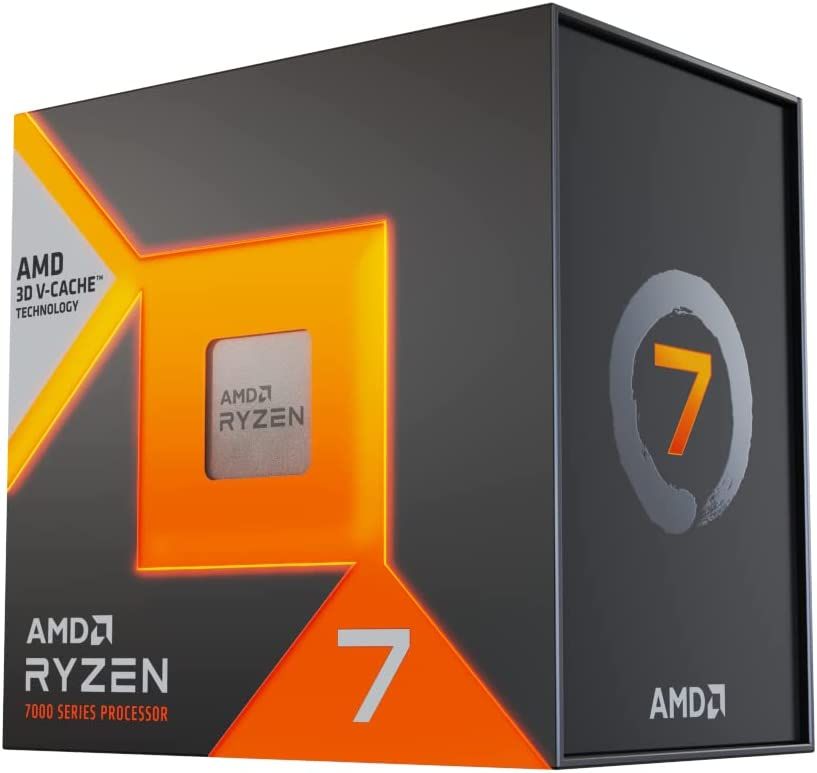
AMD Ryzen 7 7800X3D
AMD’s Fastest Gaming Processor
The AMD Ryzen 7 7800X3D is AMD’s latest and greatest CPU when it comes to gaming. It brings industry-leading performance and efficiency when gaming on a PC and takes down competitors that cost significantly more.
Pros- Excellent gaming performance
- Zen 4 Cores
- High Boost Clocks
- Has Access To PCI-E 5.0 And DDR5
- Highly efficient for gaming
Cons- Has expensive motherboards
- Has some QC issues relating to voltage
- Struggles with multi-core intensive workloads
-
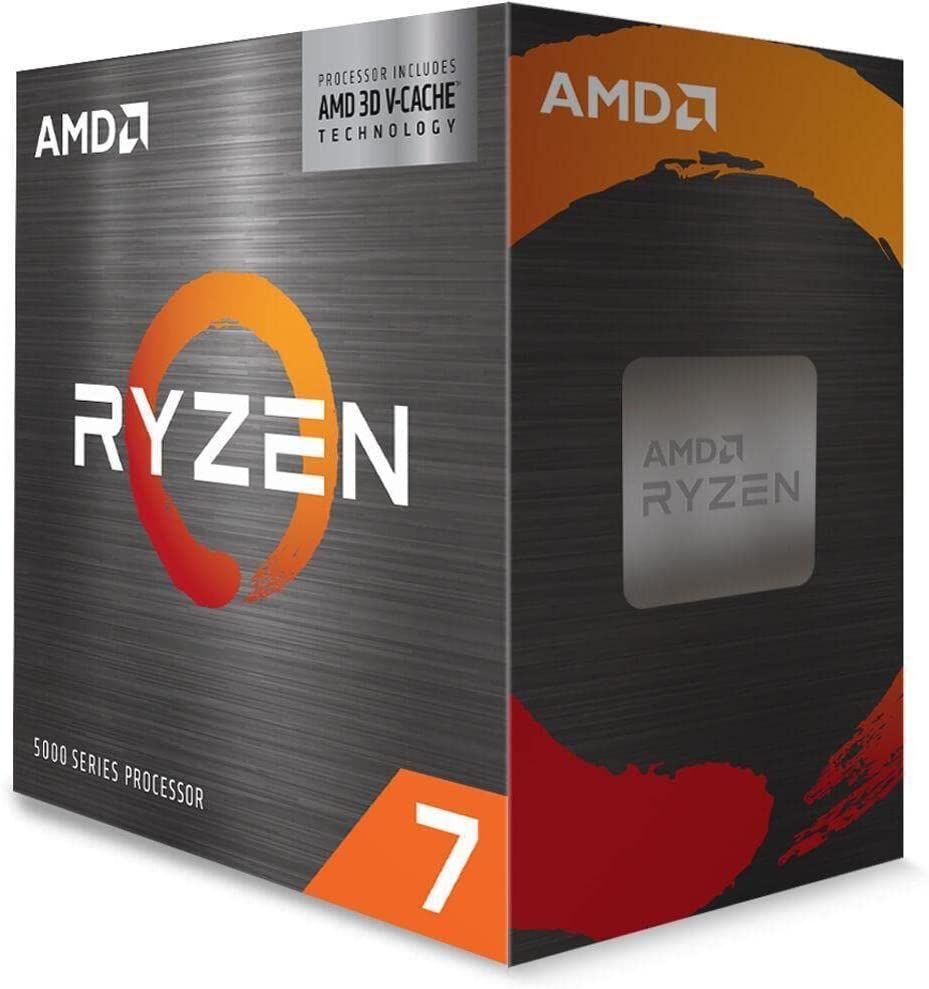
AMD Ryzen 7 5800X3D 8-Core 16-Thread Processor
AMD’s Last Gen Gaming Bastion
The AMD Ryzen 7 5800X3D launched just over a year ago and still holds its own against AMD’s and Intel’s best-in-class CPUs when it comes to gaming. That alone speaks volumes about the PC gaming heavyweight processor that has simply refused to die versus subsequent iterations of Intel CPUs.
Pros- Efficient For Gaming
- Has low cost motherboard options available
- Stable, tried and tested platform
- Excellent Value For Money
Cons- Not the fastest gaming CPU currently
- Lackluster productivity performance
CPUs, as the name suggests, are core to driving performance in gaming and workstation PCs alike. When trying to find the best gaming CPU for your needs, it’s easy to get lost in the details. Take a closer look at two of the best AMD gaming CPUs included in our buyer’s guide to help you make an informed choice. If you’re not set on AMD CPUs specifically, you can find the best overall gaming CPUs in our other buyer’s guide.
AMD’s Ryzen 7 7800X3D has re-established AMD’s dominance in the gaming CPU market again as the 8-core, 16-thread processor takes on and successfully decimates processors that cost a multiple of what it does and pack as much as 3 times the number of cores it does when it comes to gaming performance across 2 different generations. As part of AMD’s X3D push, it performs exceptionally well when it comes to gaming while performing slightly slower than its equivalent Ryzen 7 processor for most productivity benchmarks and tools.
The processor it replaces is AMD’s last bastion in the AM4 camp: the formidable Ryzen 7 5800X3D, which delivers excellent performance and in its heyday 3 years ago, delivered exceptional value, efficiency, and gaming performance that took out Intel’s best offerings in the market and made them feel inadequate at a fraction of the power draw.
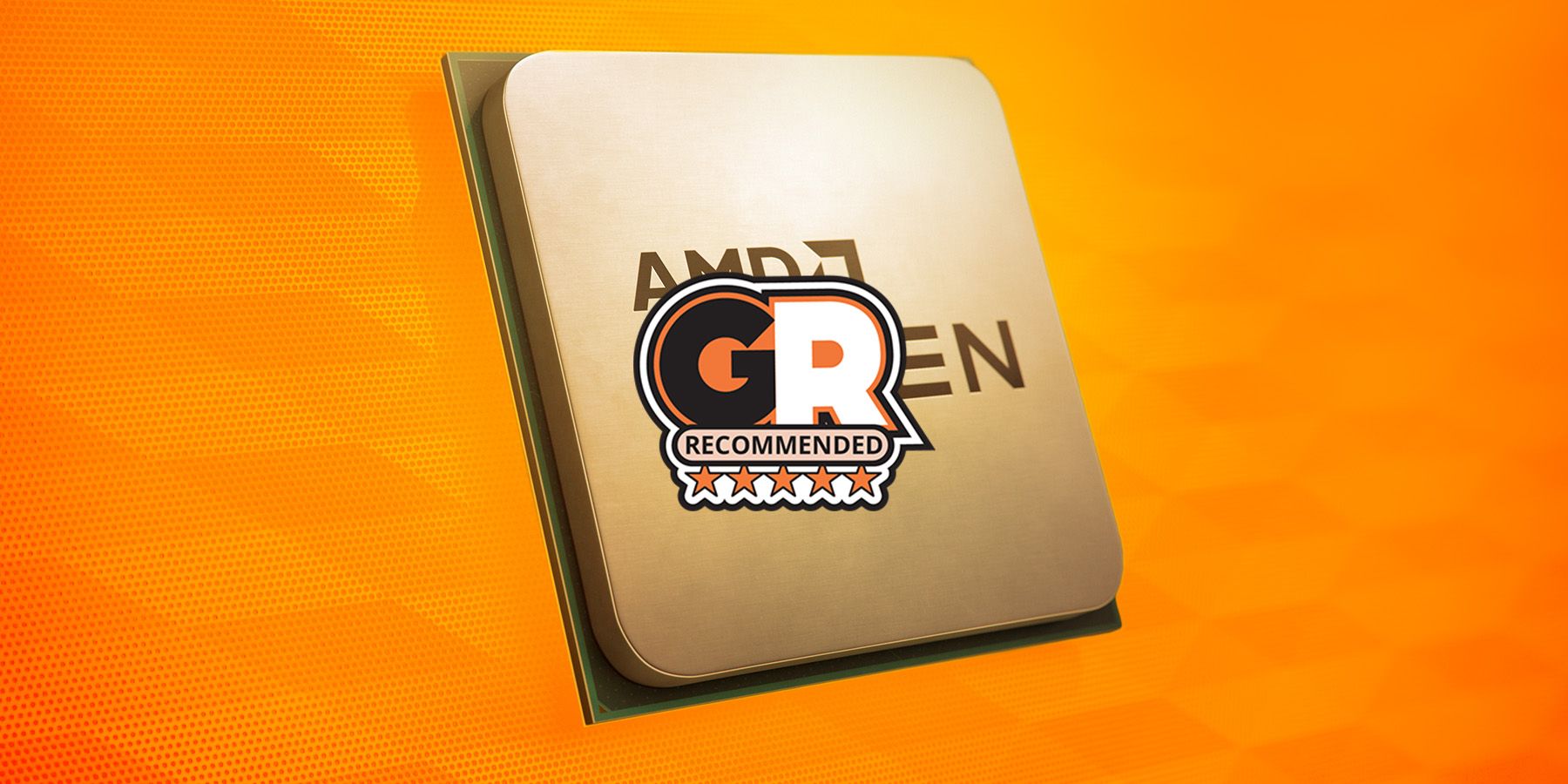
Best AMD CPUs For Gaming in 2024
The best AMD CPUs make any gaming experience better, and these are the best AMD CPUs you can buy right now.
What Makes These Processors Comparable?
Both chips achieve this by utilizing a stacked 3D V-Cache of L3 memory that far exceeds what would be their normal specification for a standard Ryzen 7 chip with 8 cores (the capable Ryzen 7 5800X or Ryzen 7 7700X) clocking in at an L3 cache of 96MB each. The Ryzen 7 7800X3D does double its L2 cache over its predecessor, however, offering 8MB of L2 vs 4MB of L2 cache on the 5800X3D.
At the same time, the Ryzen 7 7800X3D benefits from higher clocks, a new platform, and a higher TDP limit, all of which let it provide a considerable upside to the 5800X3D, which to date is still an excellent and capable gaming-centric CPU.
Without further ado, let’s see how AMD’s latest and greatest for gaming stacks up with its previous juggernaut.
AMD Ryzen 7 7800X3D vs AMD Ryzen 7 5800X3D: Head-To-Head Comparison
|
CPU Name |
AMD Ryzen 7 7800X3D |
AMD Ryzen 7 5800X3D |
|
Process Node |
5nm |
7nm |
|
Core Architecture |
Zen 4 ‘Raphael’ |
Zen 3 ‘Vermeer’ |
|
# Of Cores |
8 |
8 |
|
# Of Threads |
16 |
16 |
|
TDP |
120W |
105W |
|
Base Clock Speed |
4.2GHz |
3.4GHz |
|
Boost Clock Speed |
5.0GHz |
4.5GHz |
|
L2 Cache |
8MB |
4MB |
|
L3 Cache |
96MB |
96MB |
|
Integrated Graphics |
Yes, 2-Core Radeon |
No |
|
Memory Compatibility |
DDR5 |
DDR4 |
|
PCI-E Version |
5.0 |
4.0 |
|
AMD Socket Support |
Socket AM5 |
Socket AM4 |
|
Stock Cooling Solution |
None Provided, Liquid Cooling Recommended |
None Provided, Liquid Cooling Recommended |
|
MSRP At Launch |
$469 |
$449 |
|
PassMark Score |
35032 |
28106 |
The 7800X3D and 5800X3D share a similar design, with a single CCD that has a large, stacked L3 cache on top that allows it to perform better than its counterparts and direct competitors alike, offering better clock-for-clock performance than their siblings that have standard cache sizes when it comes to games in particular. The 7800X3D pushes higher base and boost clocks and a higher TDP in tow (but it runs quite efficiently in-game at sub 50W on average) and supports the newer PCI-E 5.0 standard as well as DDR5 memory as it embraces AMD’s first socket change in years to AM5 platform. With double the L2 cache, a $20 premium in MSRP, and as a product of AMD’s 5nm (versus 7nm) process node the Ryzen 7 7800X3D is a marked improvement in multiple ways as AMD looks to it as the torchbearer for 2024 for its gaming CPU ambitions.
Both CPUs are also somewhat similar. They both ship without stock coolers and recommend cooling instead to cool what is a relatively hotter die than their counterparts; the stacked 3D cache die does need a lot of cooling and some air coolers might be less than adequate for the job. Both 8-core, 16-thread CPUs have 96MB of L3 cache and share similar TJMax values (89-90 degrees) that indicate AMD’s implementation of 3D V-Cache has not significantly changed as it continues to limit clocks, voltages, and on-chip temperatures to prevent any damage to the stacked cache as both processors aim to keep temps at a relative low during operation, somewhat more aggressively than their current-gen siblings.
AMD Ryzen 7 7800X3D: The Undisputed King Of The Hill?

AMD Ryzen 7 7800X3D
The Best Performance AMD CPU
The Fastest Gaming CPU Money Can Buy
$369 $450 Save $81
The AMD Ryzen 7 7800X3D is AMD’s latest and greatest CPU when it comes to gaming. With an excellent and highly efficient gaming performance that tops the charts currently, the Ryzen 7 7800X3D is here to stay and has a crown to claim thanks to its 3D V-Cache-enabled prowess when it comes to gaming on a PC.
The octa-core CPU currently happens to be the fastest in the business for gaming even as it leads efficiency charts at the top, making it a very sought-after gaming upgrade.
- Brand
- AMD
- CPU Model
- Ryzen 7 7800X3D
- CPU Socket
- AM5
- Cores
- 8
- Threads
- 16
- PCIe 4.0 Support
- Yes, Supports up to PCI-E 5.0
- Architecture
- Zen 4
- Process
- 5nm
- Base Clock Speed
- 4.2GHz
- Boost Clock Speed
- 5.0GHz
- Cache
- 8MB L2 + 96MB L3
- TDP
- 120W
- iGPU
- Yes, Integrated Radeon 2 Core
- Comes with AMD’s latest Zen 4 Cores
- Boost clocks are considerably higher than its predecessor
- Extremely power efficient
- Has integrated Graphics
- Is priced higher than the 5800X3D
- Requires newer AM5 motherboards and DDR5 RAM to work
The AMD Ryzen 7 7800X3D is AMD’s Magnum Opus for gaming since its release a year ago. It retains its gaming crown well into 2024 thanks to a milder refresh coming from Intel and a deeper $70 to $100 discount on the CPU in play over the past year. Unlike the pricier 7950X3D which caters to creators, gamers, and productivity professionals alike, the Ryzen 7 7800X3D draws a much more nuanced, but focused view at gaming, comprising, much like the Ryzen 7 5800X3D of a single CCD with the same amount of L3 cache stacked on top of it.
It does offer significant gains in terms of raw performance versus its predecessor, as is evident from its PassMark score, which can be partially attributed to the newer, improved Zen 4 cores and also to the higher base and boost clocks in play.
Much like the 5800X3D, AMD advises using a liquid cooler for the Ryzen 7 7800X3D. This is not because of the chip requiring a significant amount of cooling; the TDP is relatively tamer compared to multiple Intel and AMD CPUs out there, but the fact that the 3D cache, which is also silicon-based is quite temperature-sensitive and runs hot by default.
AMD’s product marketing slides see the chipmaker emphasize that it will support the Socket AM5 platform for multiple years, a somewhat similar experience that many AMD users had from being early Ryzen adopters when the first 1000 series chips came out (Source: Amazon)
Enthusiasts might want to tinker with this further, engaging AMD’s PBO mechanism to gain further boosts for gaming and productivity which would further exacerbate the need for having quality cooling in play for the Ryzen 7 7800X3D. Thankfully, most mainstream AMD AM4 socket coolers also work on AM5, allowing you access to multiple solid choices down the line if needed. It also happens to support AMD’s first pinless processor design as all AM5 processors go LGA to match the socket, a much-requested feature by both entry-level PC builders and professionals alike.
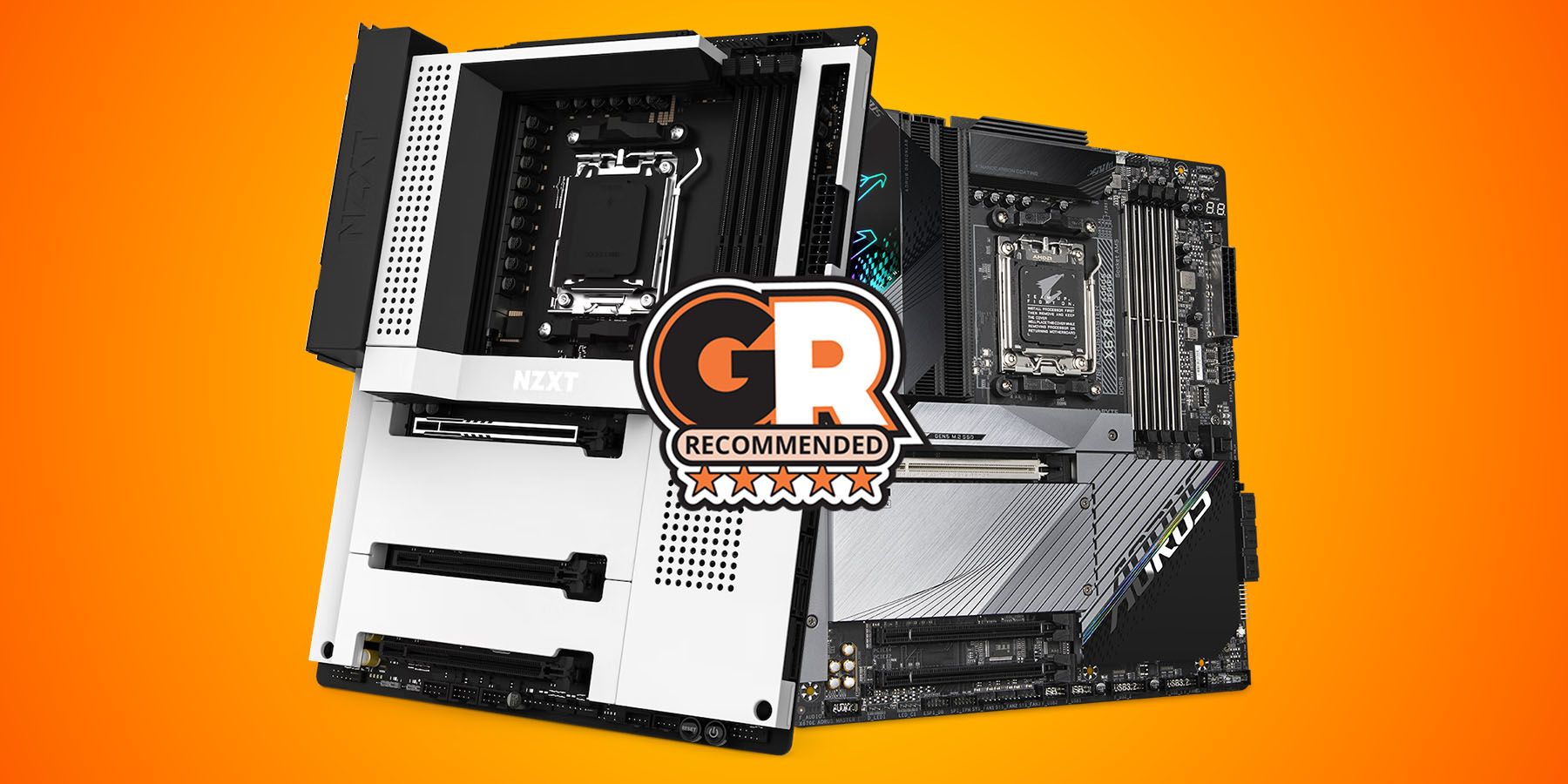
The Best Motherboards To Pair With The AMD Ryzen 7 7800X3D
Here are some of the best motherboards to consider pairing with the AMD Ryzen 7 7800X3D.
AMD Ryzen 7 5800X3D: Still Alive and Kicking

AMD Ryzen 7 5800X3D 8-Core 16-Thread Processor
The Best Value AMD CPU
Value-Centric AM4 Upgrade
$330 $450 Save $120
The AMD Ryzen 7 5800X3D launched just over a year ago and still holds its own against AMD’s and Intel’s best-in-class CPUs when it comes to gaming. That alone speaks volumes about the PC gaming heavyweight processor that has simply refused to die versus subsequent iterations of Intel CPUs.
- Socket
- AMD AM4
- Brand
- AMD
- TDP
- 105W
- Cores
- 8
- Threads
- 16
- iGPU
- N/A
- L3 Cache
- 96MB
- Base Clock
- 3.4GHz
- Boost Clock
- 4.5GHz
- Moderately power efficient for gaming
- More cost-effective than the AMD Ryzen 7 7800X3D
- Has a lower TDP than the 7800X3D
- Is part of a stable, refined AM4 platform
- Has no upgrade path for most users
- Limited to PCI-E 4.0 and DDR4
The AMD Ryzen 7 5800X3D is a capable gaming CPU that delivers excellent value for money without compromising significantly on performance, still holding its own against Intel’s 12th and 13th generation processors reasonably even if it no longer commands a crown in certain titles since the advent of the Ryzen 7 7800X3D.
With a lower TDP and clocks in tow than the much more well-tuned 7000 series octa-core processor, it still consumes more power than its successor thanks to its older process node, but still outpaces comparable entries from Intel considerably in efficiency. It can still hold its own with the fastest from Intel’s 12th generation for CPU-bottlenecked gaming task sets while costing a fraction of the price. It also can not be tweaked or even mildly overclocked, unlike the 7800X3D.
The overclocking limitations might be rooted in an attempt at superior stability at the time of launch for the CPU, which was a trailblazer in its own right. This was, after all, AMD’s first 3D-stacked L3 cache-based CPU that saw commercial release, and it seems Team Red wanted to play it safe to avoid damaging the CCD or the stacked 3D Cache, which can run warmer than its cores itself during operation.
The Ryzen 7 5800X3D runs on AMD’s legacy AM4 platform, where it offers all that a previous-generation platform can, with PCI-E 4.0 support, support for DDR4 memory, and multiple options that can cater to your needs including a plethora of motherboards from the last generation, making it both a safer and stable platform while running noticeably cheaper for most due to cheaper entry-level motherboards coupled with upgrade potential from an older generation Ryzen processor.
While the 7800X3D supplants the Ryzen 7 5800X3D, it still appears to have a significant pricing edge, going for nearly $80 cheaper than its successor with more savings to be had when you consider the components it needs to be paired with are also proportionally cheaper.
The Drawbacks Of Going AMD’s X3D Processors
AMD’s X3D processors are created with a single primary goal in mind: maximizing performance for gaming, and they do deliver exceptionally so, but it does come at a cost of softer target boost clocks and lower thermal limits to avoid causing damage to the stacked V-Cache, which also runs hot by default. The number one issue that these processors face is that these lower clocks translate to poor productivity-related performance issues compared to their own comparable (and much cheaper) non-X3D alternatives that tend to outperform these in general-purpose computing by a decent margin without breaking the bank like some of the more expensive versions, such as the Ryzen 9 7950X3D.
It does mean that, in a nutshell, if you are primarily going to be gaming on the PC you are building, the Ryzen 7 7800X3D (and the Ryzen 7 5800X3D to a lesser extent) is a solid performer with no comparable performer within its price range. However, thanks to its lower-clocked, octa-core design, it does fare poorly versus its higher-clocked siblings in tasks that do not utilize its extra L3 cache adequately. Meanwhile, the lower clocks and thermal limits for boosting do take their toll on real-world performance in non-gaming applications. This is particularly evident when it comes to Intel’s 13th and 14th generation CPUs, which stack more cores and push higher clocks in a bid to compete for both performance in gaming and productivity alike.
This doesn’t mean that both octa-core X3D processors can not handle performance-centric applications however, just that they will be noticeably slower and more expensive per available core for large multithreaded applications. If gaming takes a backseat for you, you might be better off going for a Ryzen 7 7700X or a Ryzen 7 5800X instead, which are both faster and significantly cheaper for certain productivity tasks.
On the plus side, if you need it for casual work and don’t mind a small premium for purchasing the best gaming processor(s) on the market, you might as well pick up the Ryzen 7 7800X3D right away. After all, it even puts Intel’s 14th generation Core i9 flagship to shame in gaming benchmarks while making an excellent case for efficiency along the way.
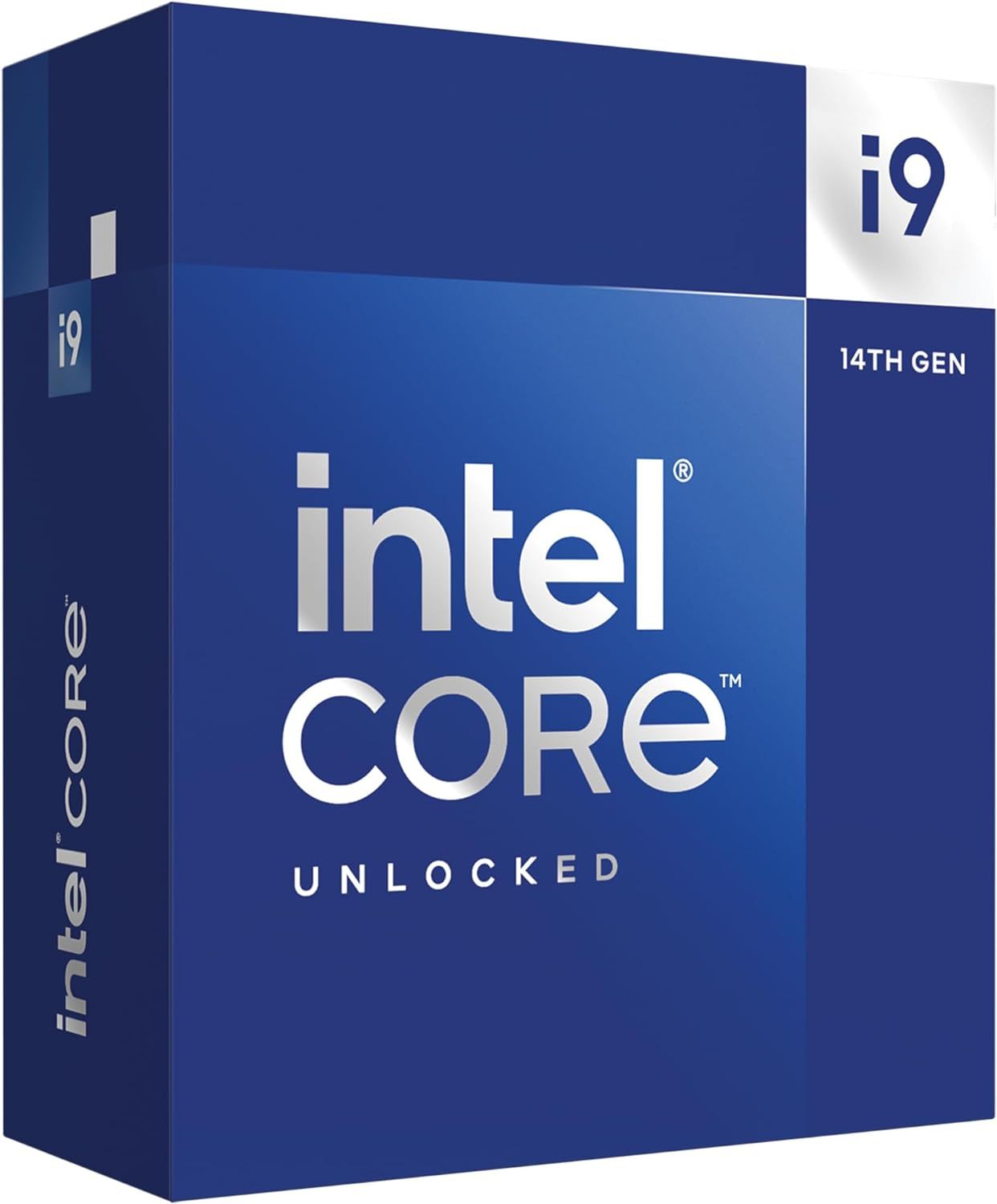
Intel Core i9 14900K Vs AMD Ryzen 7 7800X3D: Is The Refresh Enough?
How does Intel’s fastest CPU to date stack up against AMD’s best gaming CPU post-launch?
Final Words: It’s An Upgrade-Friendly World
If the Ryzen 7 7800X3D was an isolated product release that was at the tail end of the AM5 platform’s cycle, one would be having a very different conversation about it. But thankfully unlike Intel’s practice of switching chipsets nearly every one or two generations, AMD tends to offer wider compatibility with motherboards from as many as 3 generations past easily supporting newer processors. The Ryzen 7 7800X3D does happen to be the fastest processor money can buy for gaming in 2023, and it is only expected to get increasingly more competitive on the AM5 front going forward with AMD’s Zen 5 processors expected to make a show as early as late 2024.
The Ryzen 7 5800X3D is a solid, price-conscious purchase today but unless you have an AM4 motherboard and are looking to eke out a bit more in terms of performance without having to spend on new DDR5 memory and an AMD 600 series motherboard, it will be hard to pick choice over the Ryzen 7 7800X3D despite the price gap unless you want to factor in the costs of a complete overhaul of an existing AMD gaming PC. That is not to say that it is a slouch, just that the Ryzen 7 7800X3D has a lot more going for it. A new, evolving socket that will make upgrades easier, access to DDR5 memory, including AMD’s EXPO-certified RAMs, and a plethora of gaming-centric motherboards that will be packed with newer features such as Wi-Fi 6E, Bluetooth 5.3, PCI-E 5.0 storage and GPU support and more, making the Ryzen 7 7800X3D our first and obvious value and performance pick for your gaming PC.
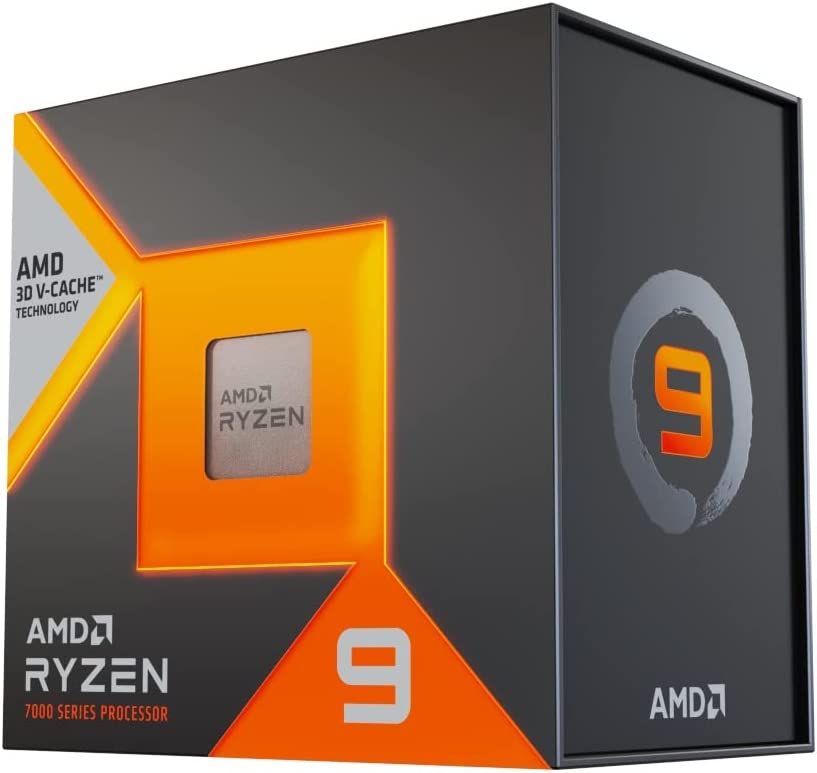
AMD Ryzen™ 9 7950X3D 16-Core, 32-Thread Desktop Processor
The Best Creator-Centric AMD CPU
Great For Productivity & Gaming
$582 $650 Save $68
The 16-core, 32-thread desktop AMD Ryzen 9 7950X3D processor is AMD’s answer to a resurgent Intel 13th generation processor lineup as it attempts to wrest back the gaming crown with the same technology that made the last generation 5800X3D such a powerful CPU.
With 128MB of L3 cache on offer, the Ryzen 9 7950X3D leverages its 3D V-Cache muscle in gaming as well as its powerful new Zen 4-based cores in productivity to make for a potent enthusiast-grade CPU in the offing.
- Socket
- AMD AM5
- Brand
- AMD
- TDP
- 120W
- Cores
- 16
- Threads
- 32
- iGPU
- Yes, RDNA 2
- L3 Cache
- 128MB
- Base Clock
- 4.2 GHz
- Boost Clock
- 5.7 GHz
If you are planning to go for productivity-related work in tandem with your gaming, you might be inclined towards the Ryzen 9 7950X3D instead, which holds its own much better than the 7800X3D for productivity-related tasks and comes dangerously close to the gaming-centric performance of both the Ryzen 7 7800X3D and the Ryzen 7 5800X3D, albeit at a significant price increase.
The Ryzen 9 7950X3D packs a whopping 16 Zen 4 cores that help it compete with the competition’s Core i9 CPUs as it leverages better efficiency and thermals, as well as touting its support for a more upgrade-friendly (AM5) platform. It consists of 2 CCDs, both of which are in an 8 core, 16 thread configuration with the L3 Cache stacked on the primary CCD. This allows it to offer significant power due to the increased core count and bumped-up clock speeds for users who have productivity needs that eclipse what the 7800X3D can provide on the best of days.
The 16-core, 32-thread AMD Ryzen 9 7950X3D can, much like its octa-core sibling, often be found on sale at a deep discount at multiple retailers, with prices often $100 below its list price, making it a great pick for users interested in a productivity-centric option in 2024.
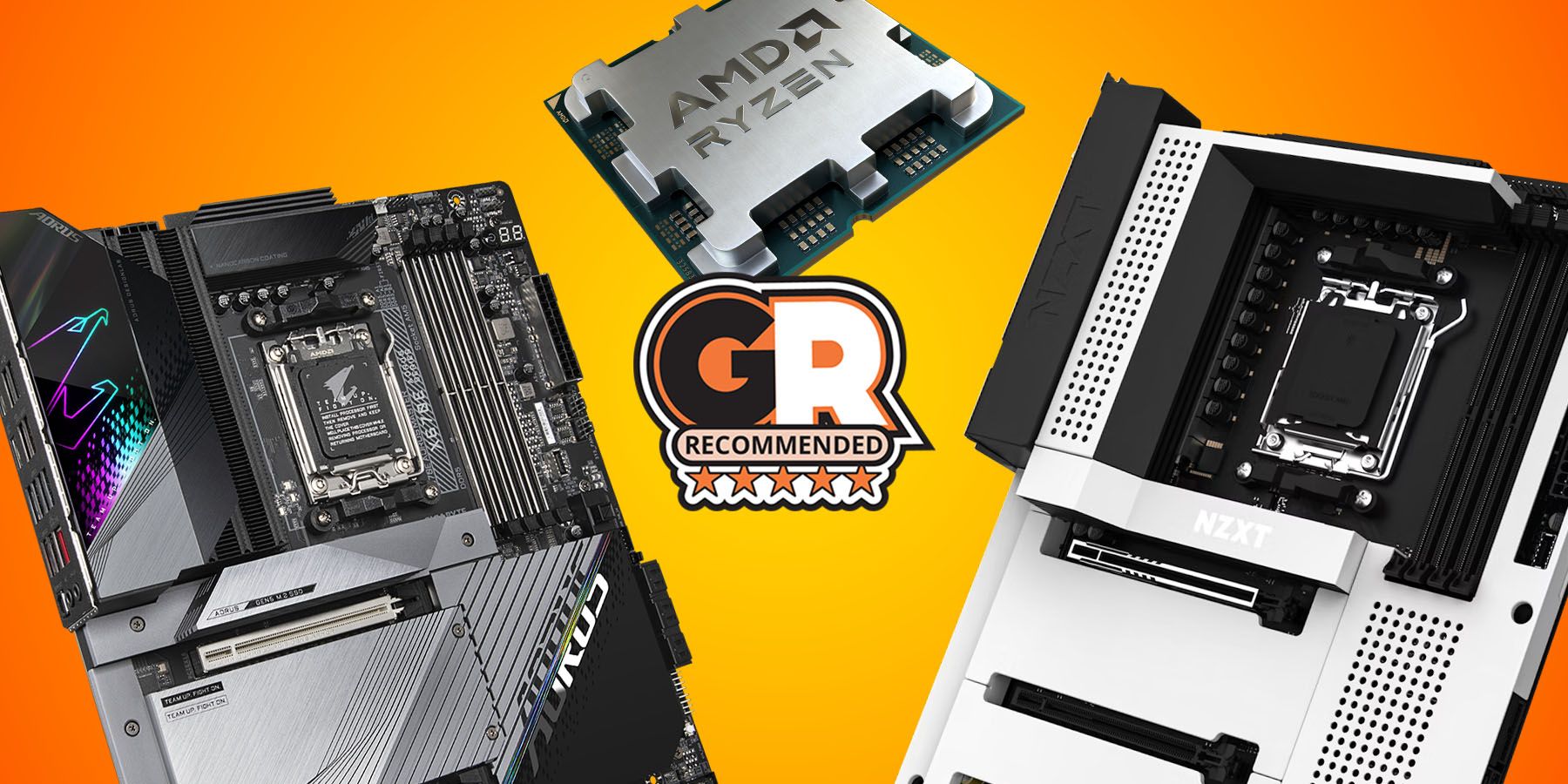
The Best Motherboards For AMD Ryzen 9 7950X3D CPUs
The AMD Ryzen 9 7950X3D is the new king of the hill for gaming CPUs, but what is the best motherboard to pair it with as part of an upgrade?
FAQ
Q: What Is The Fastest AMD Processor Available For Purchase Currently?
The Fastest consumer-grade AMD Processor for productivity is the Ryzen 9 7950X. The AMD Ryzen 7 7800X3D is currently the fastest chip for gaming from Team Red while the Ryzen 9 7950X3D offers the best of both worlds by coming a close second in both categories.
Q: Is The Ryzen 7 5800X3D A Good Processor in 2024?
Yes, the Ryzen 7 5800X3D is an excellent and relevant processor in 2024 and remains the best AM4 CPU for gaming to date.


